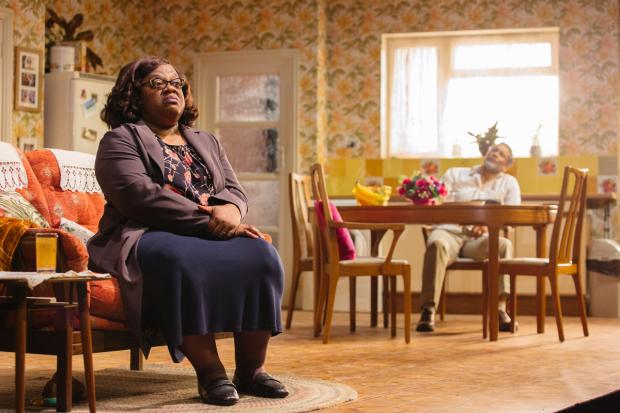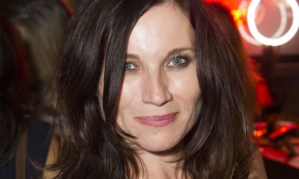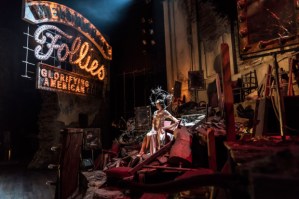Review: Nine Night (National Theatre)
Roy Alexander Weise directs Natasha Gordon’s debut play

© Helen Murray
Family funerals have long been a stage staple. They offer dramatists everything they need, forcing a disparate set of characters together, all heavy with grief and ripe with recriminations. Rooted in ritual and faith, they also offer a glimpse into a specific culture – be it the Pentecostal Barbadians of Robin Soans' Perseverance Drive, the bickering barrow boys of David Eldridge's In Basildon or the addled Californians of Tracy Letts' August: Osage County. Death, so often, defines us – both as people and as peoples.
If Natasha Gordon's boisterous first play follows the form too closely – you see the cogs whirring beneath – it raises a wealth of issues around identity, inheritance and immigration in the British Jamaican community; a sector of society at the forefront of the news cycle as the Windrush scandal rumbles on.
Nine nights, also known as Dead Yard, is a Caribbean custom: an extended wake whereby grieving families open the departed's home for a succession of effusive parties, while waiting for the dead spirit to appear and pass over. It has echoes of the Jewish custom of sitting shiva, only soaked in rum and reggae. That combo – heaving loss and hearty celebration – gives Nine Night its distinctive atmosphere. Solemnity pings out of jubilation; private tears fall as a party rages on next door. The relentless cheer, muddled with sleep deprivation and sadness, instils this woozy sense of limbo – something George Dennis' blurry reggae soundtrack pushes to the max in Roy Alexander Weise's sparky production. You start to wonder who's waiting for release: the ghost or the hosts.
In this London household, that's Lorraine (a stoic Franc Ashman), the youngest daughter who, having cared for her cancer-stricken Jamaican mother Gloria, is now lumped with a worry of wellwishers. It's measure of ingrained domestic hierarchy that, as she caters and cleans, her brother Robert (Oliver Alvin-Wilson) cracks on with his new business – one that could use the cash injection of a quick property sale. While he toasts his mother with tots of rum and finds space for a sadness masculinity prevents him from showing in public, she keeps nightly vigil by candlelight, desperate to dream of her mother so that both can move on.
By day, though, she has to contend with the huffs and tuts of her meddlesome Aunt Maggie, a first-gen arrival who's clung to Jamaican culture (EastEnders being the one exception) and insists she knows nine nights better than anyone. Cecilia Noble gives an uproarious comic turn beneath an off-kilter wig and a sneer of distaste, nitpicking over details and browbeating her laidback husband Vince (Ricky Fearon). She's steely too, insisting that the funeral waits for Gloria's eldest daughter Trudy to fly in from Jamaica – despite the ten years she went without seeing her mother.
Gordon skims, breezily, between issues: from toxic black masculinity and fears about fatherhood to levels of assimilation, especially as Lorraine's daughter (Rebekah Murrell) seeks to reconnect with her roots – a luxury her mother likely never had. Stirring conflicts into the pot, Gordon lets drama simmer to boiling point, but it's too easy to spot the stock grief-stricken flashpoints in a play that's as broad as it is big-hearted. Without saying too much, it's only when Trudy flies in that family and funeral tie up together: her whole life a limbo, waiting for an invite to leave home and move on. Nine Night shows how we cling to our ancestors and they, in their own way, cling to us.






















